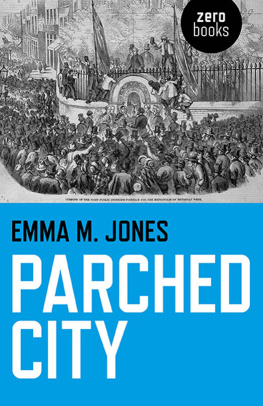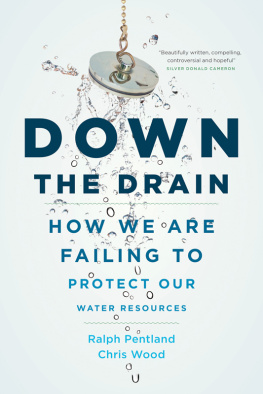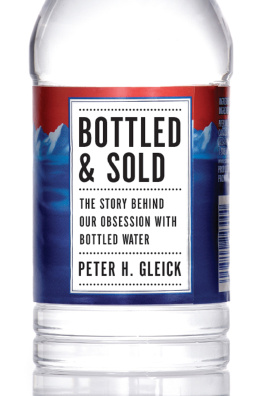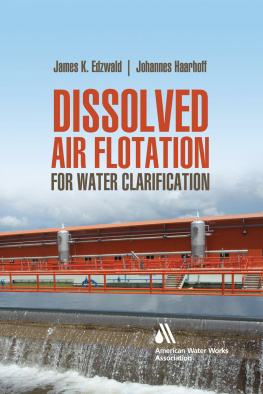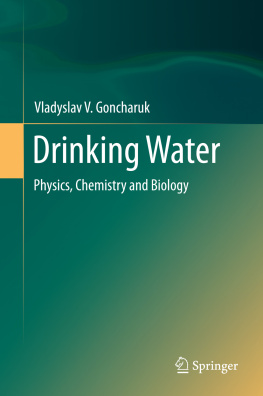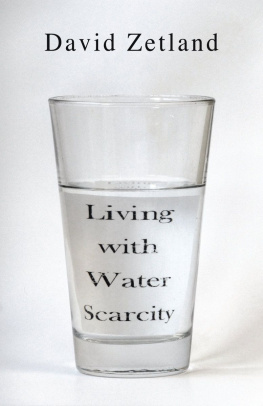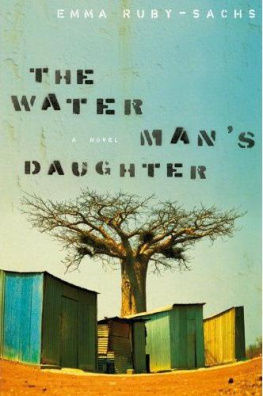Emma M. Jones - Parched City
Here you can read online Emma M. Jones - Parched City full text of the book (entire story) in english for free. Download pdf and epub, get meaning, cover and reviews about this ebook. year: 2013, publisher: Zero Books, genre: Religion. Description of the work, (preface) as well as reviews are available. Best literature library LitArk.com created for fans of good reading and offers a wide selection of genres:
Romance novel
Science fiction
Adventure
Detective
Science
History
Home and family
Prose
Art
Politics
Computer
Non-fiction
Religion
Business
Children
Humor
Choose a favorite category and find really read worthwhile books. Enjoy immersion in the world of imagination, feel the emotions of the characters or learn something new for yourself, make an fascinating discovery.
- Book:Parched City
- Author:
- Publisher:Zero Books
- Genre:
- Year:2013
- Rating:4 / 5
- Favourites:Add to favourites
- Your mark:
- 80
- 1
- 2
- 3
- 4
- 5
Parched City: summary, description and annotation
We offer to read an annotation, description, summary or preface (depends on what the author of the book "Parched City" wrote himself). If you haven't found the necessary information about the book — write in the comments, we will try to find it.
| Safe drinking water is essential to daily life. Meeting that demand with bottled water is a luxury too far, argues Emma Jones. She is not a lone critic of the packaged water industry. However, this author looks to history for solutions to a major sustainability problem: in the design, management and use of the city. With original stories from Londons archives, Parched City tracks drinking-water obsessions through a popular architectural history tale. |
Parched City — read online for free the complete book (whole text) full work
Below is the text of the book, divided by pages. System saving the place of the last page read, allows you to conveniently read the book "Parched City" online for free, without having to search again every time where you left off. Put a bookmark, and you can go to the page where you finished reading at any time.
Font size:
Interval:
Bookmark:


First published by Zero Books, 2013
Zero Books is an imprint of John Hunt Publishing Ltd., Laurel House, Station Approach,
Alresford, Hants, SO24 9JH, UK
www.johnhuntpublishing.com
www.ayni-books.com
www.zero-books.net
For distributor details and how to order please visit the Ordering section on our website.
Text copyright: Emma M. Jones 2012
ISBN: 978 1 78099 158 0
All rights reserved. Except for brief quotations in critical articles or reviews, no part of this book may be reproduced in any manner without prior written permission from the publishers.
The rights of Emma M. Jones as author have been asserted in accordance with the Copyright,
Designs and Patents Act 1988.
A CIP catalogue record for this book is available from the British Library.
Design: Stuart Davies
Printed and bound by CPI Group (UK) Ltd, Croydon, CR0 4YY
We operate a distinctive and ethical publishing philosophy in all areas of our business, from our global network of authors to production and worldwide distribution.
Researching this book was possible because of the public learning resources in London that I had free access to and the skilled professionals who assisted me at those institutions. Above all, my thanks go to the staff at the City of Londons London Metropolitan Archives where I must pay particular credit to Jane Muncaster, Jeremy Smith and Claire Titley for their sage advice, generously given on many occasions and their patience with numerous queries.
Sincere thanks are also due to The Authors Foundation and its 2011 panel of assessors who granted me an award to buy some invaluable writing time. Their professional endorsement was a great vote of confidence that boosted me in the middle of this project.
Thanks also to Capital Radio for permission to quote from an interview with the former Metropolitan Water Board engineers Arthur Durling and George Graham.
For the contemporary chapters, my interviewees were extremely generous with their time and professional knowledge. Warm thanks is given, therefore, to Maria Andrews (formerly of Waste Watch), Megan Ashfield (Populous Architects), Ralph Baber and John E. Mills (The Drinking Fountain Association), Victor Callister (City of London Corporation), Professor Jeni Colbourne (Drinking Water Inspectorate), Kath Dalmeny, Christine Haigh and Jackie Schneider (Sustain), Michael Green (tapwater.org), Jenny Hall (formerly of the Museum of London), Guy Jeremiah (Aquatina/Find-A-Fountain), Jarno Stet (Westminster City Council), and Steve White (Thames Water). I am also appreciative of Cory Environmental Services for allowing me to visit its Materials Recovery Facility in Wandsworth and to the Veolia employees in Westminster who sifted the bins from Piccadilly Circus on my behalf.
Respondents to my call for drinking fountain memories were also very generous in their contributions, so many thanks to them and to the local history societies and colleagues in other organisations who took the time to disseminate my request.
I also want to thank Jakob Horstmann at Zed Books for his advice about publishing and Tariq Goddard of Zer0 Books for such an enthusiastic response to my initial proposal.
Friends have been more than generous with their queries about my progress, even when it was painfully slow, and offered much moral support and plenty of welcome distractions. In particular, my thanks go to Sue Baker, Katie Bradbury, Ally Branley, Kevin Brown, David Cross, Kirsty Cunningham, Rose Dawson, Katherine Davey, Alexandra and James Goddard, Julia Griffin, Helen Griffith, Ashley Kelly, Launa Kennet, James Kidd, Torsten Lange, Emma Reynolds, Dinah Roe, Mark Smith, Jason Vir, Julie Watson and Adam Wilkinson.
Elish and Gerald Chapman (my much-loved in laws) have both been great sources of support. Thanks also to Dr Bruce Stewart, my learned stepfather, and my brother, Nick Stewart who have given me plenty of votes of confidence.
A very warm thanks is reserved for Declan Jones, my father, for his positive feedback on my initial chapter and his firm belief that I could complete the project. His comment that my writing is muscular still baffles me, but I accept it. Sigrid Castle, his partner, also offered generous encouragement.
Above all, there are three women without whose support I simply could not have written this book.
Dr Barbara Penner offered continuous encouragement and intellectual inspiration throughout my project. As an editor, her input was invaluable. I still have no idea how she squeezed in reading drafts of chapters and my manuscript whilst writing her own book (actually, two books!), lecturing and mothering, but I am indebted to her for giving me this time. Look out for her forthcoming book, an architectural history of the modern Bathroom (Reaktion).
Sheila Geraghty, my mother, financially supported my first period of my research, which laid the foundation for the rest of the book to be built upon. For that material help, I am extremely fortunate and very grateful indeed. Her moral support throughout the project was unfaltering.
Grace Chapman, my partner, has been my emotional anchor. She has patiently listened to my various rants about drinking water over the last two and a half years, and occasionally now gets on the anti-bottled-water soapbox herself. Graces comments on the content of early chapters were both sharply critical and encouraging but, most of all, I thank her for putting up with me during grumpy spells and a long period of meagre income on my part. My resourceful cooking skills possibly have something to do with her tolerance.
Water should be treated as a social and cultural good, and not primarily as an economic good. The manner of the realisation of the right to water must also be sustainable, ensuring that the right can be realised for present and future generations.
(United Nations, 2002)
In spring 2012, Londoners had reason to contemplate their tap water less absentmindedly than usual. Drought is an apocalyptic word. Fears about the official state of drought were muted by the measure to combat it. Hosepipe ban has a cosy, suburban twang. This phrase reassures us that, although lawns might turn crispy brown, our drinking water source is not seriously threatened. Since 2007, Londons water stress categorisation by the Environment Agency as serious has not translated into a situation where essential water uses are curtailed. Not having drinking water on tap would be unimaginable in this leading world city.
Even if Londons tap water supply was temporarily suspended, the city is well served with an alternative, equally reliable drinking water source. Bottled water flows into London, as steadily as the subterranean pipes through which more than two billion litres of premium treated tap water are pumped daily. There is one significant difference; a standard bottled water brand, such as Coca Colas Schweppes Abbey Well (1.60 for 500ml), is approximately 2462 times more expensive per litre than tap water (this figure is based on a metered supply). Put simply, we consume and produce more than we need. My real question is how might we change this paradigm, at least for one essential product?
Londons drinking water excess is inherently flawed, both environmentally and ethically. Environmentally, sufficient energy; human resources; materials and money are lavished on the treatment of raw water to produce tap water of a quality that both meets and way exceeds our needs. Tap water standards produce the same consumable whether it is poured into ones mouth or down ones toilet, or used to mix cement (for the latter example, apologies to those builders who strive to employ grey water technologies). In 2011, a desalination plant even joined Thames Waters arsenal to quench Londoners thirst. It performs alchemy on the tidal reaches of the river to produce freshwater.
Font size:
Interval:
Bookmark:
Similar books «Parched City»
Look at similar books to Parched City. We have selected literature similar in name and meaning in the hope of providing readers with more options to find new, interesting, not yet read works.
Discussion, reviews of the book Parched City and just readers' own opinions. Leave your comments, write what you think about the work, its meaning or the main characters. Specify what exactly you liked and what you didn't like, and why you think so.

